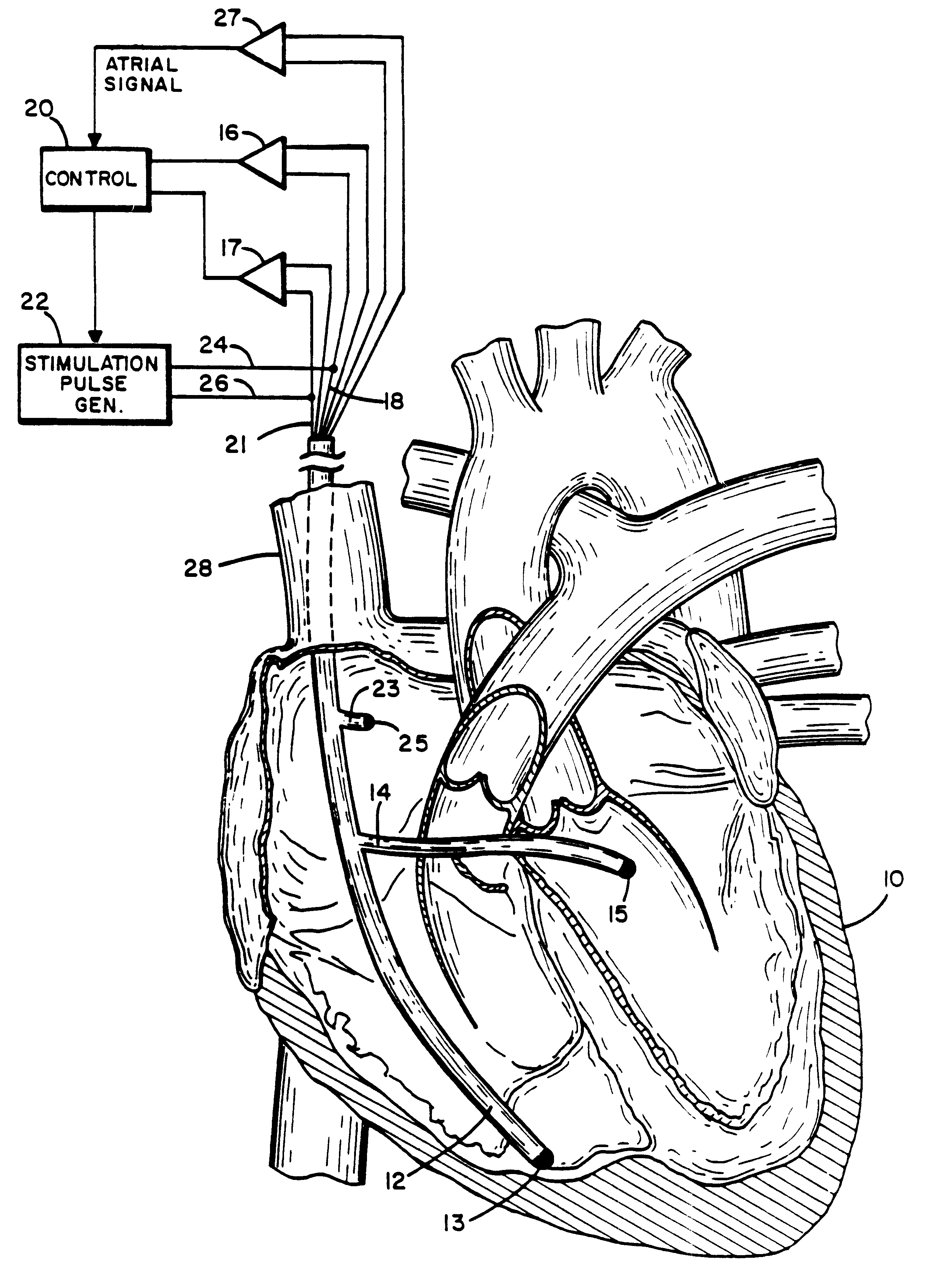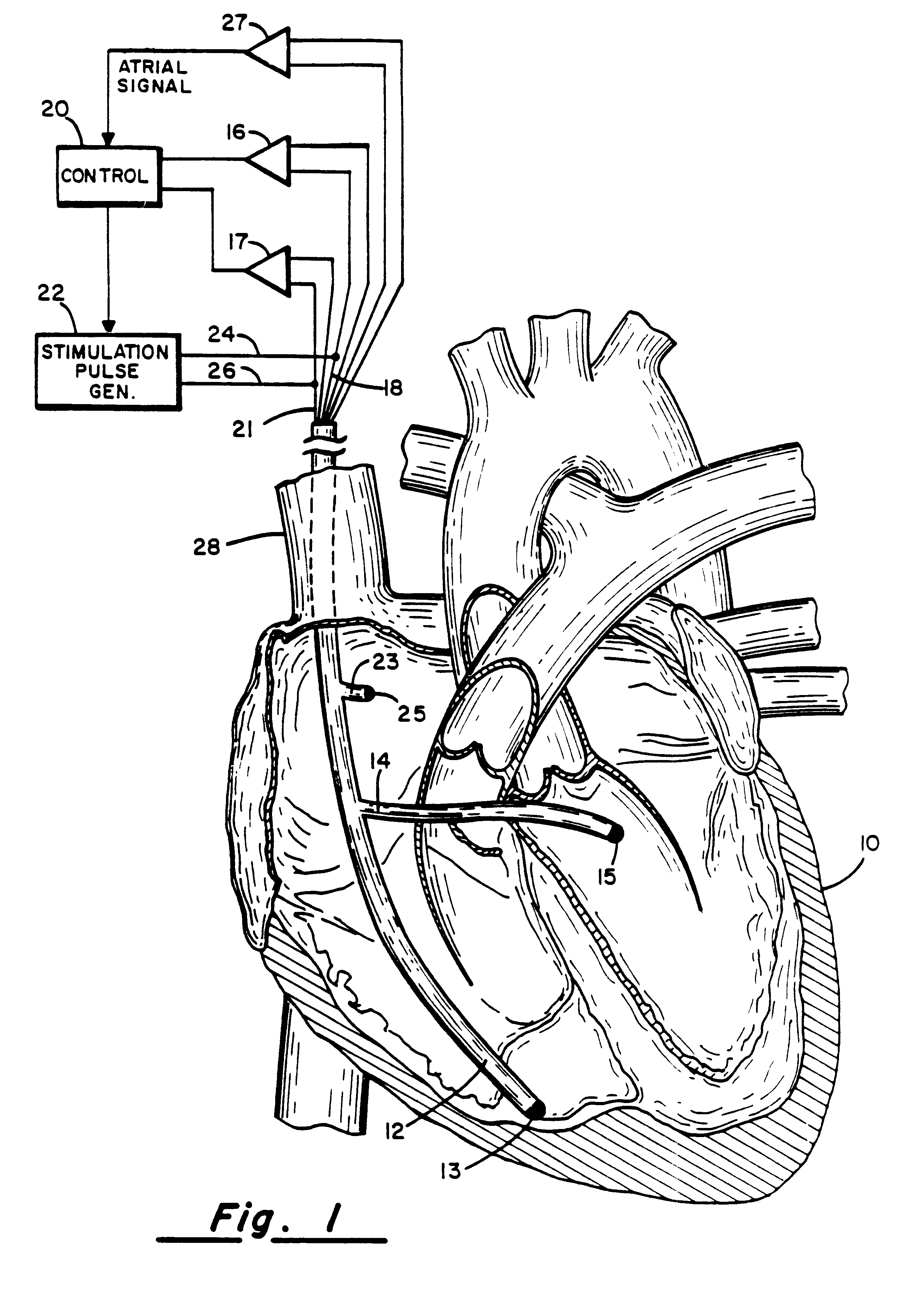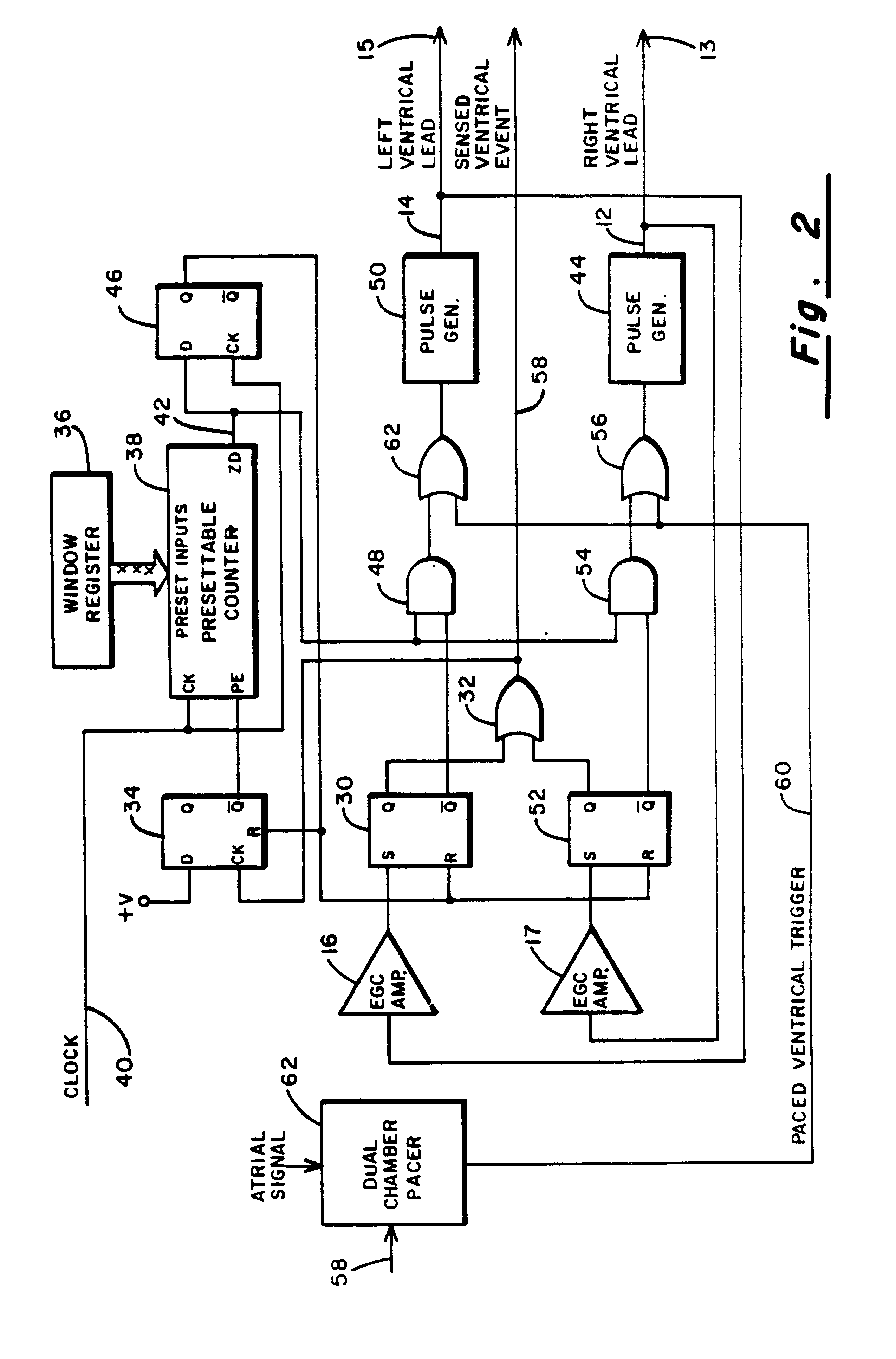Method and apparatus for treating hemodynamic disfunction
a hemodynamic and disfunction technology, applied in the field of medical devices, can solve the problems of increasing depolarization time, affecting the normal transmission of nerve impulses from the sa node, and presenting significant problems in the direction of electrotherapy, therapy, heart stimulators, etc., and achieves the effects of reducing surgical risks, increasing blood pressure and cardiac outpu
- Summary
- Abstract
- Description
- Claims
- Application Information
AI Technical Summary
Benefits of technology
Problems solved by technology
Method used
Image
Examples
Embodiment Construction
FIG. 1 illustrates the overall pacing system which may be employed for carrying out the teachings of the invention. A pair of leads 12 and 14 with corresponding sensing / stimulating tip electrodes 13 and 15 are electrically connected, via conductors 18 and 21, to separate ECG sense amplifiers 16 and 17 (or to a single multiplexed amplifier). The amplifiers 16 and 17 are both connected to a control circuit unit 20. A stimulator circuit 22 is connected to the control unit 20 and has two output conductor lines 24 and 26 which are electrically connected to the conductors 18 and 21, respectively. From this structure, signals my be separately sensed by the electrodes 13 and 15 and stimulating pacing signals may be separately delivered to the electrodes 13 and 15, via lead branches 12 and 14.
In operation, the electrodes 13 and 15 are disposed in or about the right and left ventricles, respectively. A preferred surgical procedure for implanting the lead 12 is to extend it through the superio...
PUM
 Login to View More
Login to View More Abstract
Description
Claims
Application Information
 Login to View More
Login to View More - R&D
- Intellectual Property
- Life Sciences
- Materials
- Tech Scout
- Unparalleled Data Quality
- Higher Quality Content
- 60% Fewer Hallucinations
Browse by: Latest US Patents, China's latest patents, Technical Efficacy Thesaurus, Application Domain, Technology Topic, Popular Technical Reports.
© 2025 PatSnap. All rights reserved.Legal|Privacy policy|Modern Slavery Act Transparency Statement|Sitemap|About US| Contact US: help@patsnap.com



